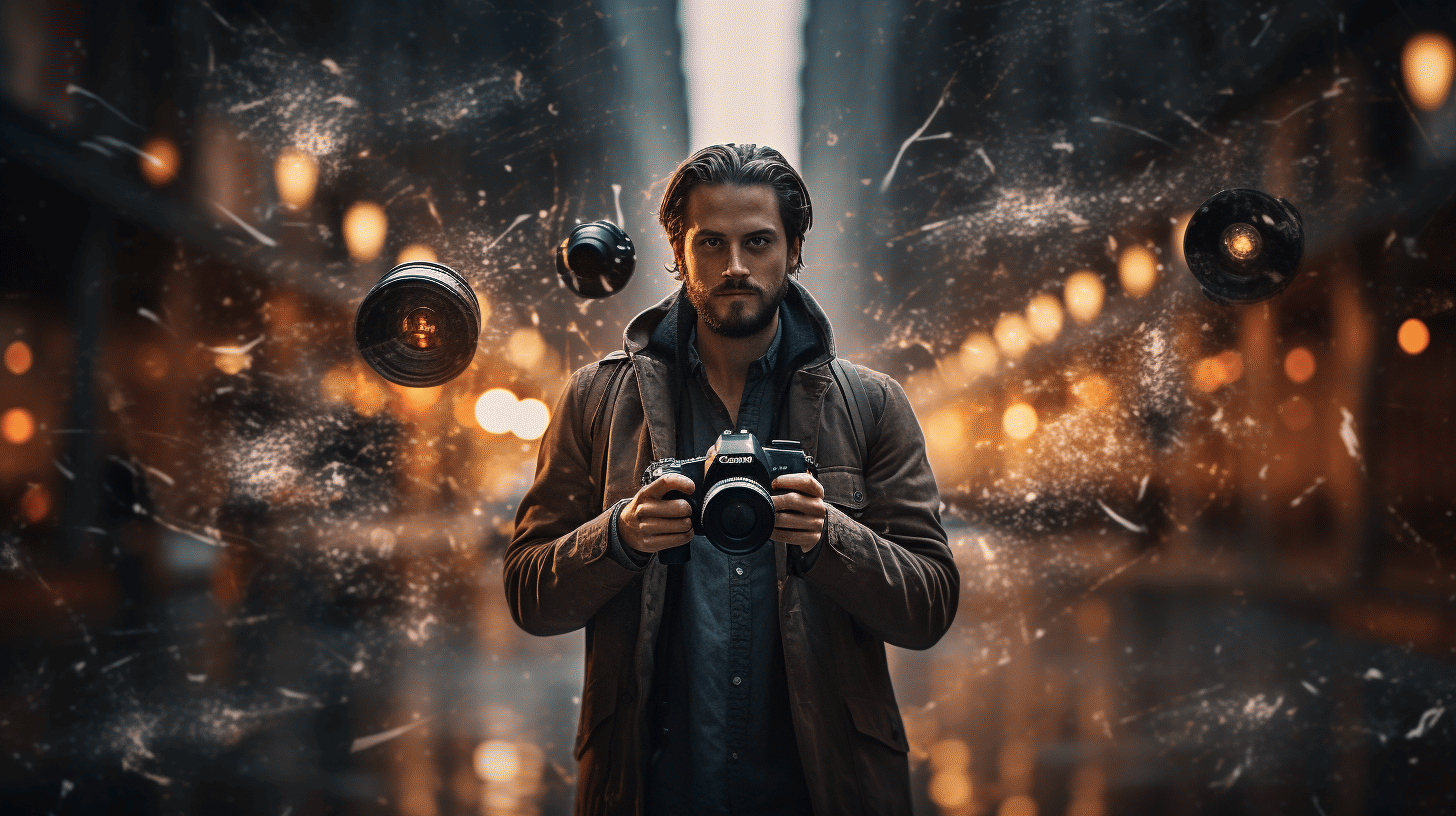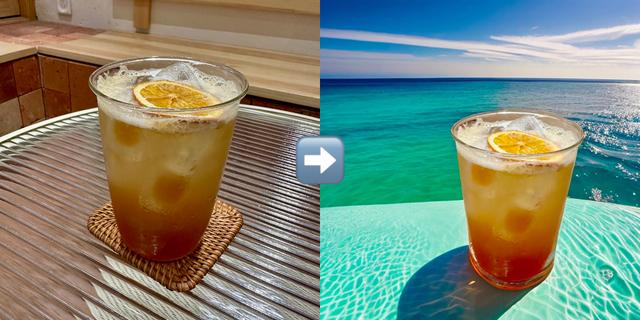AI photography is transforming how people create, edit, and optimize images. It leverages advanced machine learning algorithms to automate various tasks traditionally handled by photographers or photo editors, including image enhancement, background removal, and even creating original photos from scratch. With AI tools now more accessible than ever, anyone can produce professional-looking images without specialized skills or expensive equipment.
In this guide, we'll dig into AI photography, how it works, the tools available today, and its impact on industries like eCommerce, social media, and fashion. No matter if you're a small business owner, content creator, or hobbyist photographer, understanding the benefits of AI photography can help you make better decisions for your projects.
The Basics of AI Photography
AI photography combines machine learning, neural networks, and computer vision to create or edit images. Essentially, it involves using algorithms that "learn" from large sets of data to perform tasks autonomously. These tasks can range from simple photo enhancements to more complex processes like generating entire scenes based on text descriptions.
How AI Transforms Photography
AI technology isn't just a novelty—it is rapidly becoming a key part of the professional photography toolkit. Below are some of the main ways AI is impacting this field:
1. Image Editing Made Simple
AI can streamline the editing process by automating tasks such as skin retouching, color correction, and object removal. Tools like Adobe Photoshop’s AI-powered Neural Filters make it easier than ever for photographers to apply high-level edits in a fraction of the time. AI software analyzes the image and makes precise adjustments based on the desired outcome.
For instance, Remini is an app that uses AI to sharpen and enhance low-resolution images, restoring old or damaged photos with just one click.
2. Generating Images From Text Prompts
AI photography also allows for generating entirely new images based on simple text descriptions. For example, tools like Flux and MidJourney are capable of creating visuals from text prompts. Imagine typing "a cat riding a skateboard in the sunset," and the AI renders a unique image of exactly that.
This technology is a game-changer for digital marketers, graphic designers, and content creators looking to produce highly specific images quickly without having to shoot them.

3. Automating Photo Curation
AI-powered tools are not only great for creating and editing images but also for sorting and selecting the best shots. For example, AI photo curation platforms like EyeEm Vision can analyze thousands of images and select the best ones based on aesthetic qualities, composition, and even emotional impact. This is particularly useful for photographers who take hundreds or thousands of photos in a single shoot, allowing them to save time during the selection process.
AI in Product Photography
AI is revolutionizing product photography by offering time-saving solutions for businesses. Traditionally, product photography required a professional photographer, expensive equipment, and a controlled environment. AI eliminates these barriers by making it possible to generate high-quality images with just a smartphone.
1. Faster Turnaround Times
AI-driven platforms like Photoroom and Assembo.ai can generate product photos instantly, reducing the time spent on manual shooting and editing. This allows businesses to upload new inventory photos within minutes, enabling quicker product launches.
For example, Soona’s shadow feature lets users create shadow effects for their product images without complex setups. This adds a professional touch to photos with minimal effort.
2. Consistent Quality
AI tools ensure that product images have a consistent look and feel, key for eCommerce sites and social media pages where visual branding matters. Whether you're uploading one product or a hundred, AI maintains uniformity across all images.
3. Cost Efficiency
Traditionally, product photography required renting studio space, paying for professional equipment, and hiring skilled photographers. AI tools allow small businesses and entrepreneurs to cut down on these costs while still maintaining high-quality images. This has been particularly helpful during the pandemic when many businesses had to shift their operations online.
Popular AI Product Photography Tools
Several AI-powered tools are available for photography, each offering different features. Here are some of the most popular ones you can try today:
1. Assembo.ai

Assembo.ai stands out for its ability to recreate styles and generate product images with custom backgrounds. With easy-to-use features, Assembo.ai can recreate product photography ideas using reference images or simple text prompts.
Pros:
- No advanced editing skills required
- Generates highly realistic backgrounds
- Offers free trials for up to 12 photos
Cons:
- Some results may require tweaking to achieve perfection
2. Photoroom
Photoroom uses AI to remove backgrounds and create studio-quality images in seconds. Its ability to recognize and remove objects from photos makes it a popular tool for eCommerce sellers and social media influencers who need professional-looking images fast.
Pros:
- Instant background removal
- Great for online marketplaces like Etsy or Amazon
Cons:
- Free trial includes watermarks on images
AI in Fashion Photography
AI isn’t just transforming product photography—it's also making waves in fashion photography. AI-driven fashion tools can create high-quality visuals, allowing brands to stay ahead of trends and cut costs on photoshoots.
1. Digital Clothing Models
With AI, fashion brands can now digitally create clothing models to showcase their products. Tools like Assembo.ai can produce hyper-realistic images of models wearing the latest collections, eliminating the need for physical models and reducing the environmental impact of shipping samples.
For example, AI can automatically generate digital clothing photoshoots for Amazon sellers, making it easier for them to promote products with minimal effort.

2. Virtual Fashion Shows
Some fashion houses are experimenting with virtual fashion shows, where AI creates catwalk scenes and outfits. This trend grew during the pandemic when physical events were canceled, but it's continuing to evolve.
3. Real-Time Fashion Editing
AI can also allow real-time editing during fashion shoots, optimizing lighting, background, and even model poses automatically. Tools like Lightricks enable photographers to apply filters, retouch photos, and adjust lighting on the spot, ensuring the best results before even leaving the shoot.
AI in Social Media Photography
For social media influencers and businesses alike, AI photography is invaluable for creating content quickly and effectively. With the rise of platforms like Instagram and TikTok, visual content is more important than ever for engaging audiences.
1. Automating Visual Content Creation
AI tools can automatically generate images and even videos for social media platforms, based on trends or specific themes. For instance, Adobe Spark's AI technology helps users create custom social media posts, complete with captions and hashtags tailored for higher engagement.
2. Enhancing User-Generated Content (UGC)
Brands can use AI to enhance user-generated content, improving image quality and adding filters or effects that match their brand identity. This enables businesses to share polished UGC on their social media pages, fostering better customer relationships while maintaining a professional look.
3. Increasing Engagement with Personalized Photos
AI photography can also increase social media engagement by generating personalized content. For example, businesses can create custom images that feature a user's name or avatar, making the content more relatable and shareable. Platforms like Canva's AI-powered design tool make this possible.
AI for Photography Professionals
While AI photography tools are democratizing photo creation for the masses, they are also proving valuable for professional photographers who want to improve workflow and boost productivity.
1. Time-Saving Editing Tools
Professional photographers are using AI tools to cut down the time they spend on repetitive tasks. For example, Luminar AI uses AI to handle complex tasks like sky replacements, face retouching, and landscape enhancements in just a few clicks. This allows photographers to focus more on creativity and less on the technical aspects of editing.
2. Smart Composition and Framing
AI can even assist in framing and
composition. Some tools analyze an image and suggest cropping it for a more balanced composition, improving the overall aesthetic appeal. This is particularly useful in stock photography, where image quality and framing are crucial.
3. Data-Driven Photo Insights
AI can offer photographers data-driven insights into what makes a photo visually appealing. Platforms like Pixolution can analyze photo libraries to identify trends in color, lighting, and composition that resonate with viewers, giving photographers the opportunity to improve future work.
The Future of AI Photography
AI photography is still evolving, and its future looks incredibly promising. We’re likely to see even more advanced tools and capabilities emerge in the next few years.
1. 3D Image Generation
One of the upcoming trends in AI photography is the generation of 3D images from 2D photos. This will allow users to rotate, zoom, and view objects from multiple angles, enhancing product presentations for eCommerce and immersive social media experiences.
2. Interactive Images
AI could also lead to interactive photos, where users can click on different parts of an image to access more information. This feature could be highly beneficial for online shopping, enabling customers to explore products in greater detail without leaving the website.
3. Personalized AI Photography Assistants
We may also see the development of personalized AI photography assistants that learn your style and preferences over time. These assistants could automatically suggest settings, lighting, and filters tailored to your specific aesthetic, making photography even more intuitive.
Final Thoughts on AI Photography
AI photography is changing the way we create and use images, making it easier, faster, and more affordable to produce professional-quality photos. No matter if you're running an online store, managing a social media account, or simply looking to improve your photography skills, AI tools offer endless possibilities. The technology may still have some limitations, but its potential is growing with each passing year.
As we look toward the future, AI is sure to play an even more significant role in photography across multiple industries.

